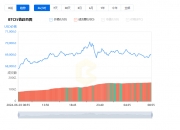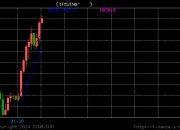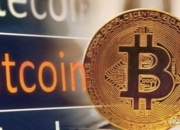苏江在微信公众号白话区块链上说了一个据说是巴菲特说的道理:
Sujiang said on the White Word section chain of the Weibo public that it was said to be Buffett:
投资最重要的事情就是要弄懂你所投的东西的价值所在。
The most important thing about investing is to understand the value of what you put in.
投资股票,我知道股票的本质是我对一家企业出资的证明,股票代表对公司的所有权,所能获得的投资回报率更多地其实是来自于公司的盈利。
I invest in equities, and I know that the essence of the stock is proof that I finance a business, and that the equity represents ownership of the company, and that the return on investment is more likely to come from the profits of the company.
但是,我投资区块链资产,买了的那点比特币,那么,我究竟买的是什么?
But I invested in block chain assets, bought the bit of bitcoin, so what exactly did I buy?
搜了一些文章,还是似懂非懂,于是,我决定去请教一下比特币首富李笑来老师。
I've been looking for some articles, and I've decided to ask for a little bitcoin's richest teacher to laugh.
我问:笑来老师,比特币到底是什么?
I said, "Come on, teacher, what is Bitcoin?"
笑来老师说:比特币就是钱。
The teacher laughed and said: bitcoinisthemoney >/b>.
比特币就是钱?我脱口而出又问到:那么,比特币能买什么?
Bitcoinismoney? And I said, "So what can bitcoin buy?"
笑来老师笑着回我说:比特币能用来买各种货币啊。
The teacher smiled and said to me, "B" bitcoin can be used to buy all kinds of money .

听了老师的回答,我有点犯嘀咕了,比特币虽然作为一种可兑换的虚拟货币,但它既没有发行机构也没有抵押物,又没任何政府或银行背书,真的有价值吗?这,是不是只是一个击鼓传花的庞氏骗局?
Listening to the teacher's answer, I'm a little murky. Bitcoin, as a convertible virtual currency, has no issuer, no collateral, no government or bank endorsement. Is it really worth it?
看到我憨逼的样子,老师可能觉得即便是像我的父母一样出钱再让我上一次大学,也不一定能把这其中欠缺的基础补上,所以,老师没再费力给我解释了。
When I look at my pussy, the teacher may think that even if I pay like my parents for the last time in college, I don't have to make up for the lack of basics, so the teacher didn't bother to explain it to me any more.
不是银行发行,没政府机构背书的比特币,算是一种货币吗?
It's not a bank issue, it's a bitcoin without a government endorsement. Is that a currency?
市场经济离不开货币。在现代社会中,社会上绝大多数人几乎每天都与各种各样的货币打交道。但是,到底什么是货币?货币的本质是什么?可能大多数人并没有思考过这个问题。
There is no market economy without money. In modern societies, the vast majority of the population deals almost every day with a variety of currencies. But, what is money? What is the nature of money?
于是,我陷入了对这个问题的思考中......
So, I'm in the middle of thinking about this...
感谢万能的信息互联网,在搜索货币本质的过程中,我似乎找到了答案:
Thanks to the All-Mighty Information Network, I seem to have found the answer in searching for the nature of the money:
传统政治经济学的货币理论认为,货币是一件东西,是从众多商品中挑选出来的一种商品,以此来作为市场交易的媒介。
The monetary theory of traditional political economics argues that money is a thing, a commodity selected from a wide range of commodities, as a medium for market transactions.
这种理论认为,在人类的远古社会,人们用粮食、贝壳、牛、鳕鱼、白银、黄金、铜等各种各样的商品做货币,后来逐渐固定为以金银做货币,然后到铸币和纸币。这种商品货币观还举例道,甚至到了近代,在二次世界大战的战俘营中,人们还用香烟做货币;在晚清时期的江南,中国的商人们还一度用鸦片做货币(在中国近代史上被称为“苏州制度”)。
This theory suggests that in ancient human societies, people use a variety of commodities such as food, shells, cattle, cod, silver, gold, copper, etc. for money, which is gradually fixed as gold and silver, and then as molars and banknotes. For example, even in recent times, in the camps of prisoners of war of the Second World War, people use cigarettes for money; in late Qing’s Jiangnan, Chinese business people used opium for money (known in China’s recent history as the “Sushu regime”).
这一流行的商品货币理论还认为,货币作为一种特殊商品,只是一种一般等价物,是市场交易的媒介,主要“是用来协助贸易的”。由此,经济学家们用理论分析的逻辑推出货币在人类社会中产生的历史逻辑是:物物交换→一种商品作为一般等价物→金银→铸币→纸币→信用卡货币→电子数字货币。
This popular commodity-currency theory also argues that, as a special commodity, money is only a general equivalent, a medium of market transactions, and is primarily “used to aid trade.” Thus, economists, using the logic of theoretical analysis, introduce the historical logic that money generates in human society: the exchange of goods for a commodity as a general equivalent, gold and silver, coins, banknotes, and credit card currencies, and electronic digital currencies.
然而,这种商品货币说,现在受到了人类学家历史研究的挑战。
However, this commodity currency is now challenged by anthropologist historical research.

密克罗尼西亚是太平洋的三大岛群之一,其中最西边的雅浦岛上曾住着一群非常古怪的土著居民。1903年,美国的人类学家威廉·亨利·弗内斯(William Henry Furness)在雅浦岛住过几个月,并把他在当地所见的风俗记录成书,书名叫《石币之岛》,因为当地的货币体系令他印象深刻。
Micronesia is one of the three major islands of the Pacific Ocean, the westernmost of which was inhabited by a very strange indigenous group. In 1903, the American anthropologist William Henry Furness lived on Yap Island for several months and documented the customs he saw there, known as the Rock Island, which he was impressed by the local monetary system.
雅浦岛上没有金属资源,于是石器在他们的文化中扮演着重要的角色。但即使是石灰岩,也需在离雅浦岛400英里远的帕劳岛上才能找到。雅浦岛部落里的探险家们开采这些石灰岩,打制成内部中空外部呈环形的石轮,然后用木筏运回雅浦岛作为货币使用。这些石轮小的直径30多厘米,大的直径有3米多。为了便于运输,有时会往中间插一根粗壮的木柱。
The islands of Yap have no metal resources, so stones play an important role in their culture. But even limestone needs to be found on Palau, 400 miles from Yap Island. Explorers in the Yap Tribes extract these limestones, make them ring-shaped wheels inside and outside, and then send them back to Yap for monetary use. These wheels are small in diameters of more than 30 centimetres and large in diameters of more than 3 metres.
雅浦石币有个很有趣的特点。交易双方在决定了使用多大的石币付费后,如果那个石头太大了,不方便运输,那么卖家只要在买家的石头上做个标记就可以了,这样就算是付费了。那个标记就说明这个石头已经属于卖家了,而石头仍然躺在买家屋里。
There's a very interesting feature of the Yap squid. After both parties to the deal decide how much they pay for it, and if the stone is too big to transport, the seller can just mark it on the buyer's stone, which means it's paid. That sign means that the stone belongs to the seller, and the stone is still in the buyer's house.
不只如此,还有更神奇的事情。岛上有一户大财主,所有人都承认他们家是首富,但奇怪的是,没有人见过首富家里的石币,连他的家人都没见过。他们家拥有的财产是一个巨大的石币,大小只有祖辈才知道,因为这个石币一直沉睡在海底。原来许多年以前,这户人家的祖辈和其他人外出探险,寻找和开采石灰岩,就像美国西部的淘金客一样。他们的祖辈运气不错,碰到了这个庞然大物,便将其制成石币,然后用木筏拉回家。但是归途中遭遇了强烈的暴风雨,为了逃命,探险队只好砍掉拉筏的绳子,于是那块巨大的石币沉入了大海,永远也找不回来了。回村后,探险队的成员都替他作证,那块石币尺寸巨大并且质量上乘。虽然已掉落大海,但大伙都见证了这块石头的去处,所以不会影响它的价值。它的主人仍然可以用它买东西,就跟把石币运回家存放起来的效果一样。
Not only is there something more amazing. There was a big owner on the island, and everyone admitted that their family was rich, but strangely, no one saw the stone coins of the rich family, even his family. Their property was a huge stone coin, the size of which was known only by their ancestors, because it had been sunk under the sea. Many years ago, the family's ancestors and others went out to explore, search for and exploit limestone, just like the gold hunters in the west of the United States. Their ancestors were lucky enough to meet the big one, make it into a stone coin and then take it home with a raft. But, while they had fallen into the sea, there was a strong storm, and in order to escape, the expedition had only to cut off the rope, so that the giant stone fell into the sea and could never be found. After returning to the village, the members of the expeditions testified on his behalf, and the rock was huge in size and of quality.

这一故事说明,雅浦岛的货币不是石币,而是背后一套以信用记账以及靠这种账目而进行清算所构成的体系。因而,石币只不过是用来记账和进行清算的表征(tokens):雅浦岛的居民在交易鱼、椰子、猪和海参的过程中,会积累信用与债务。这些信用和债务可以用来抵消交易中彼此需要清算的款额。只要交易对方允许,人人都可以用石币这种通货兑换适当价值(也就是说,一种货币是否有价值只取决于有没有人愿意使用它兑换),通过这种方式在单笔交易完成后把未结清的账目清掉,也可以按日或周为期限结清;卖方和雅浦岛上的其他人都享有这种赊账的信用,而石币就是对这种信用的有形可见的记录。
The story shows that Yap's currency is not a stone coin, but rather a system
石币与比特币思想简直就是异曲同工:石币与比特币都具有稀缺性,前者是大自然的石灰岩矿藏分布,后者是基于数学算法;两者同样需要付出昂贵的劳力(计算力)成本才能获取,前者是冒险家的航海运输,后者是矿工的挖矿;两者交易总账均采用分布式存储,前者是大脑记忆,后者是计算机。
Stone and bitcoin are virtually identical: they are the natural limestone deposits, which are scarce; they are based on mathematical algorithms; they also require costly labour (calculation) costs, which are the maritime transport of adventurers, and miners, which are diggers; and they are distributed deposits, which are the brain memory and computers.

看完上面这个故事,比特币也变得不那么令人费解了:比特币是否有价值取决于有没有人愿意使用它来进行价值交换。在总量有限的情况下,越多人使用,比特币的价值必然越来越高。
After reading this story, Bitcoin also becomes less inexplicable: the value of bitcoin depends on whether someone is willing to use it for value swaps . In a limited amount, the more many people use it, the greater the value of bitcoin is bound to grow.
参考资料:
References:
学习学习再学习--20151117《比特币世界简明生存指南》
Learning Re-Learning -- 20151117 A Concise Life Guide for the Bitcoin World
腾讯《大家》韦森2016-05-17 《从雅浦岛上大石轮“费”看货币的本质》
I'm going to tell you, "We're all going to have to do this."
《区块链--从数字货币到信用社会》
Block Chain - From Digital Currency to Credit Society
注册有任何问题请添加 微信:MVIP619 拉你进入群

打开微信扫一扫
添加客服
进入交流群



















发表评论